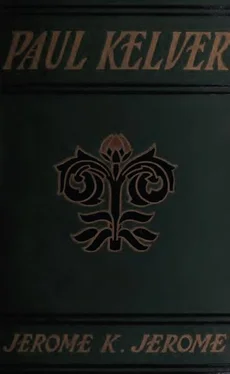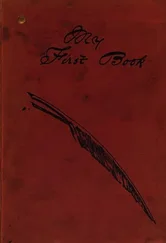Jerome Jerome - Paul Kelver
Здесь есть возможность читать онлайн «Jerome Jerome - Paul Kelver» весь текст электронной книги совершенно бесплатно (целиком полную версию без сокращений). В некоторых случаях можно слушать аудио, скачать через торрент в формате fb2 и присутствует краткое содержание. Город: New York, Год выпуска: 1902, Издательство: Dodd, Mead & Company, Жанр: Классическая проза, на английском языке. Описание произведения, (предисловие) а так же отзывы посетителей доступны на портале библиотеки ЛибКат.
- Название:Paul Kelver
- Автор:
- Издательство:Dodd, Mead & Company
- Жанр:
- Год:1902
- Город:New York
- ISBN:нет данных
- Рейтинг книги:3 / 5. Голосов: 1
-
Избранное:Добавить в избранное
- Отзывы:
-
Ваша оценка:
- 60
- 1
- 2
- 3
- 4
- 5
Paul Kelver: краткое содержание, описание и аннотация
Предлагаем к чтению аннотацию, описание, краткое содержание или предисловие (зависит от того, что написал сам автор книги «Paul Kelver»). Если вы не нашли необходимую информацию о книге — напишите в комментариях, мы постараемся отыскать её.
Paul Kelver — читать онлайн бесплатно полную книгу (весь текст) целиком
Ниже представлен текст книги, разбитый по страницам. Система сохранения места последней прочитанной страницы, позволяет с удобством читать онлайн бесплатно книгу «Paul Kelver», без необходимости каждый раз заново искать на чём Вы остановились. Поставьте закладку, и сможете в любой момент перейти на страницу, на которой закончили чтение.
Интервал:
Закладка:
But I would not have you sneer at them, thinking all pretence must spring from snobbishness and never from mistaken self-respect. Some fine gentleman writers there be—men whose world is bounded on the east by Bond Street—who see in the struggles of poverty to hide its darns only matter for jest. But myself, I cannot laugh at them. I know the long hopes and fears that centre round the hired waiter; the long cost of the cream and the ice jelly ordered the week before from the confectioner's. But to me it is pathetic, not ridiculous. Heroism is not all of one pattern. Dr. Washburn, had the Prince of Wales come to see him, would have put his bread and cheese and jug of beer upon the table, and helped His Royal Highness to half. But my father and mother's tea was very weak that Mr. Jones or Mr. Smith might have a glass of wine should they come to dinner. I remember the one egg for breakfast, my mother arguing that my father should have it because he had his business to attend to; my father insisting that my mother should eat it, she having to go out shopping, a compromise being effected by their dividing it between them, each clamouring for the white as the most nourishing. And I know however little the meal looked upon the table when we started I always rose well satisfied. These are small things to speak of, but then you must bear in mind this is a story moving in narrow ways.
To me this life came as a good time. That I was encouraged to eat treacle in preference to butter seemed to me admirable. Personally, I preferred sausages for dinner; and a supper of fried fish and potatoes, brought in stealthily in a carpet bag, was infinitely more enjoyable than the set meal where nothing was of interest till one came to the dessert. What fun there was about it all! The cleaning of the doorstep by night, when from the ill-lit street a gentleman with a piece of sacking round his legs might very well pass for a somewhat tall charwoman. I would keep watch at the gate to give warning should any one looking like a possible late caller turn the corner of the street, coming back now and then in answer to a low whistle to help my father grope about in the dark for the hearthstone; he was always mislaying the hearthstone. How much better, helping to clean the knives or running errands than wasting all one's morning dwelling upon the shocking irregularity of certain classes of French verbs; or making useless calculations as to how long X, walking four and a quarter miles an hour, would be overtaking Y, whose powers were limited to three and a half, but who had started two and three quarter hours sooner; the whole argument being reduced to sheer pedantry by reason of no information being afforded to the student concerning the respective thirstiness of X and Y.
Even my father and mother were able to take it lightly with plenty of laughter and no groaning that I ever heard. For over all lay the morning light of hope, and what prisoner, escaping from his dungeon, ever stayed to think of his torn hands and knees when beyond the distant opening he could see the sunlight glinting through the brambles?
“I had no idea,” said my mother, “there was so much to do in a house. In future I shall arrange for the servants to have regular hours, and a little time to themselves, for rest. Don't you think it right, Luke?”
“Quite right,” replied my father; “and I'll tell you another thing we'll do. I shall insist on the landlord's putting a marble doorstep to the next house we take; you pass a sponge over marble and it is always clean.”
“Or tesselated,” suggested my mother.
“Or tesselated,” agreed my father; “but marble is more uncommon.”
Only once, can I recall a cloud. That was one Sunday when my mother, speaking across the table in the middle of dinner, said to my father, “We might save the rest of that stew, Luke; there's an omelette coming.”
My father laid down the spoon. “An omelette!”
“Yes,” said my mother. “I thought I would like to try again.”
My father stepped into the back kitchen—we dined in the kitchen, as a rule, it saved much carriage—returning with the wood chopper.
“What ever are you going to do, Luke, with the chopper?” said my mother.
“Divide the omelette,” replied my father.
My mother began to cry.
“Why, Maggie—!” said my father.
“I know the other one was leathery,” said my mother, “but it was the fault of the oven, you know it was, Luke.”
“My dear,” said my father, “I only meant it as a joke.”
“I don't like that sort of joke,” said my mother; “it isn't nice of you, Luke.”
I don't think, to be candid, my mother liked much any joke that was against herself. Indeed, when I come to think of it, I have never met a woman who did, nor man, either.
There had soon grown up a comradeship between my father and myself for he was the youngest thing I had met with as yet. Sometimes my mother seemed very young, and later I met boys and girls nearer to my own age in years; but they grew, while my father remained always the same. The hair about his temples was turning grey, and when you looked close you saw many crow's feet and lines, especially about the mouth. But his eyes were the eyes of a boy, his laugh the laugh of a boy, and his heart the heart of a boy. So we were very close to each other.
In a narrow strip of ground we called our garden we would play a cricket of our own, encompassed about by many novel rules, rendered necessary by the locality. For instance, all hitting to leg was forbidden, as tending to endanger neighbouring windows, while hitting to off was likewise not to be encouraged, as causing a temporary adjournment of the game, while batter and bowler went through the house and out into the street to recover the ball from some predatory crowd of urchins to whom it had evidently appeared as a gift direct from Heaven. Sometimes rising very early we would walk across the marshes to bathe in a small creek that led down to the river, but this was muddy work, necessitating much washing of legs on the return home. And on rare days we would, taking the train to Hackney and walking to the bridge, row up the river Lea, perhaps as far as Ponder's End.
But these sports being hedged around with difficulties, more commonly for recreation we would take long walks. There were pleasant nooks even in the neighbourhood of Plaistow marshes in those days. Here and there a graceful elm still clung to the troubled soil. Surrounded on all sides by hideousness, picturesque inns still remained hidden within green walls where, if you were careful not to pry too curiously, you might sit and sip your glass of beer beneath the oak and dream yourself where reeking chimneys and mean streets were not. During such walks my father would talk to me as he would talk to my mother, telling me all his wild, hopeful plans, discussing with me how I was to lodge at Oxford, to what particular branches of study and of sport I was to give my preference, speaking always with such catching confidence that I came to regard my sojourn in this brick and mortar prison as only a question of months.
One day, talking of this future, and laughing as we walked briskly. through the shrill streets, I told him the words my mother had said—long ago, as it seemed to me, for life is as a stone rolling down-hill, and moves but slowly at first; she and I sitting on the moss at the foot of old “Jacob's Folly”—that he was our Prince fighting to deliver us from the grim castle called “Hard Times,” guarded by the dragon Poverty.
My father laughed and his boyish face flushed with pleasure.
“And she was right, Paul,” he whispered, pressing my small hand in his—it was necessary to whisper, for the street where we were was very crowded, but I knew that he wanted to shout. “I will fight him and I will slay him.” My father made passes in the air with his walking-stick, and it was evident from the way they drew aside that the people round about fancied he was mad. “I will batter down the iron gates and she shall be free. I will, God help me, I will.”
Читать дальшеИнтервал:
Закладка:
Похожие книги на «Paul Kelver»
Представляем Вашему вниманию похожие книги на «Paul Kelver» списком для выбора. Мы отобрали схожую по названию и смыслу литературу в надежде предоставить читателям больше вариантов отыскать новые, интересные, ещё непрочитанные произведения.
Обсуждение, отзывы о книге «Paul Kelver» и просто собственные мнения читателей. Оставьте ваши комментарии, напишите, что Вы думаете о произведении, его смысле или главных героях. Укажите что конкретно понравилось, а что нет, и почему Вы так считаете.












